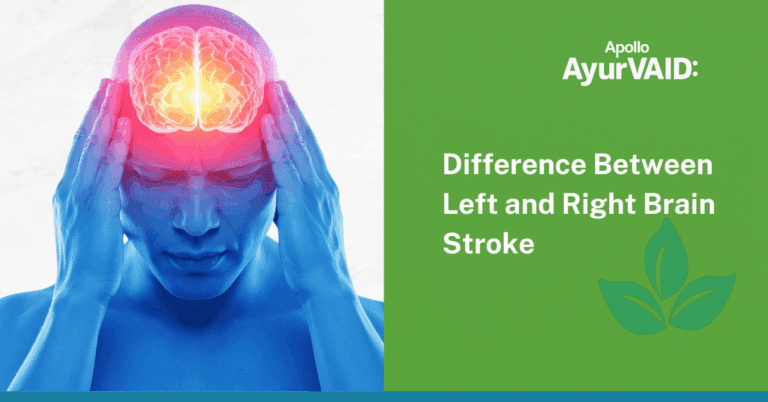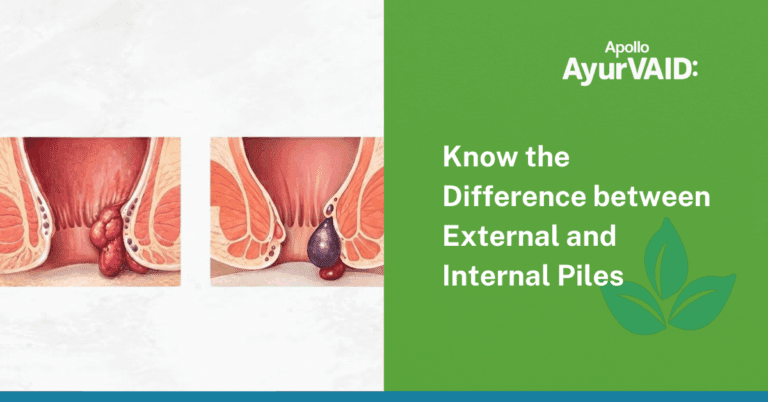When your clothes start fitting tighter than usual or you feel tired just walking a short distance, your body might be trying to tell you something. These are often the early overweight symptoms we brush off. But over time, they can develop into serious health concerns.
Obesity, or Sthaulya as known in Ayurveda, is not just about looking heavy or having extra fat. It’s a state where there’s an excessive build-up of Meda Dhatu (fat tissue), usually because your Agni (digestive fire) has weakened, and Ama (toxic waste) has started to accumulate. According to the World Health Organisation, obesity is now classified as a chronic disease.
Let’s get something clear. Obesity is not always a result of laziness or poor eating habits. That’s an outdated and misleading view. It’s often a result of many reasons for weight gain, including biological, emotional, genetic, and environmental factors. From hormonal changes and poor sleep to stress and medications, what causes weight gain is far more complex than what we see on the surface.
In India, the obesity crisis is rising. One in four Indians is overweight or obese. And while city life may be exciting, it comes at a cost: long work hours, processed food, and little time to move our bodies. That’s a dangerous mix.
So, how do you know when it’s becoming a health issue?

Spotting the Overweight Symptoms
You might notice it starts slowly. Breathlessness even after a short walk. Constant fatigue. Clothes are fitting tighter. Heaviness in the body, poor digestion, increased hunger, and thirst. Trouble sleeping. Aching joints. Even recurring skin infections are due to moisture in skin folds. These aren’t just random, but they’re some of the common symptoms of obesity.
In Ayurveda, these signs usually point to low digestive fire (Agni), increased Kapha, and toxin build-up (Ama). When these imbalances set in, the body starts storing more fat and feels heavier or sluggish. It’s a gradual process, not always obvious at first, but it signals the need to reset metabolism and digestion.
Let’s not ignore the emotional side. Many people dealing with obesity suffer from poor self-esteem, anxiety, and even depression. Feeling judged or misunderstood can add a mental burden that further triggers reasons for weight gain, like emotional eating.
The Hidden Dangers: Effects of Obesity
Excess fat, especially around your abdomen, doesn’t just stay in your belly. It silently increases your risk of serious illnesses, including heart disease, diabetes, stroke, hypertension, infertility, fatty liver, osteoarthritis, and even some cancers. These are the long-term effects of obesity that most people don’t see coming until it’s too late.
In Ayurveda, when Meda Dhatu increases disproportionately, it blocks the channels or Srotas, disrupting the flow of nutrients and energy in the body. This not only affects your digestion but also the nourishment of other tissues like bones, marrow, and reproductive fluid. The result? A cascade of health issues.
Why Losing Weight Feels So Hard
You’ve probably heard this: “Just eat less and move more.” But if that worked for everyone, obesity wouldn’t be a global epidemic.
The truth is, there are several hidden causes of weight gain. For example, after losing some weight, your body slows down your metabolism as a survival response. Hormones like ghrelin (hunger hormone) increase. You feel hungrier, even though you’re eating right. Stress raises cortisol levels. You retain fat. Sleep deprivation messes with insulin. Add in genetics or medications like antidepressants, and now you’ve got a perfect storm.
Ayurveda offers a fresh lens in such situations. It doesn’t blame the individual. It treats obesity as a dosha imbalance and aims to revive your digestion, metabolism, and inner balance through personalised care.
Ayurveda Insight into Obesity: Beyond Calorie Counting
Obesity in Ayurveda is not about numbers on a scale. It’s about Agni, Ama, Meda, and Srotorodha (blocked channels). The focus is on restoring internal harmony rather than chasing quick weight loss. Ayurveda works through therapies that are not just detox tools but powerful metabolic resets. The idea is to correct the root cause, clear out toxins, balance hormones, and rekindle digestion.
There’s also emphasis on daily habits. Eating according to your Prakriti (body constitution), avoiding heavy meals at night, walking post meals, ensuring quality sleep, and managing stress, these are all powerful tools for sustainable healing.
What Causes Weight Gain: It’s Not Just Food
Sure, food matters. But so does everything else. Ayurveda classifies the causes of weight gain under:
- Aharatmaka Nidana (food-related): eating large portions, processed snacks, heavy dairy or meat
- Viharatmaka Nidana (lifestyle-related): inactivity, irregular sleep, no exercise
- Manasika Nidana (mental): stress, sadness, comfort eating
- Anya Nidana (other): genetics, medications, chronic illness
Understanding your Nidana, or cause, is the key to reversing obesity. That’s why cookie-cutter diets and trendy weight loss plans often fail. They don’t address the real reason you gained weight in the first place.
Ayurveda Approach to Weight Loss
At places like Apollo AyurVAID, obesity care isn’t about starving or counting calories. It’s about resetting the entire ecosystem of your body. Our step-by-step approach begins with an in-depth assessment of your body type, metabolic strength, stress levels, and health history. From there, we design a personalised plan involving classical medicines, therapies, and a practical Ayurveda diet for weight loss.
Treatments like Udwarthana, Takrapana, and Lekhana Vasti may be recommended depending on your condition.
The results? Improved digestion, steady fat loss, more energy, a lighter mood, and better health. Over time, patients often see improvements in conditions like diabetes, blood pressure, thyroid, and even fertility.
Closing Thoughts
Obesity is not a personal failure. It’s a health condition rooted in multiple factors. By recognising the early overweight symptoms and understanding the deeper causes of weight gain, you give yourself the power to act.
Modern science sees obesity as a metabolic condition. Ayurveda views it as an imbalance of Doshas and tissues. Put them together, and you’ve got a powerful, integrative approach to healing. Healing from obesity isn’t about shrinking your body. It’s about reclaiming your energy, health, and confidence naturally and sustainably.

References
Verma, A., Shete, S. U., & Doddoli, G. (2019). An integrated therapy approach for managing obesity-associated disorders: A case report.
Journal of Family Medicine and Primary Care, 8(4), 1491–1494.
Journal of Alternative and Complementary Medicine, 25(S1), S124–S137.
Oroxylum indicum (L.) Kurz bark.
Journal of Ethnopharmacology, 197, 138–146.






